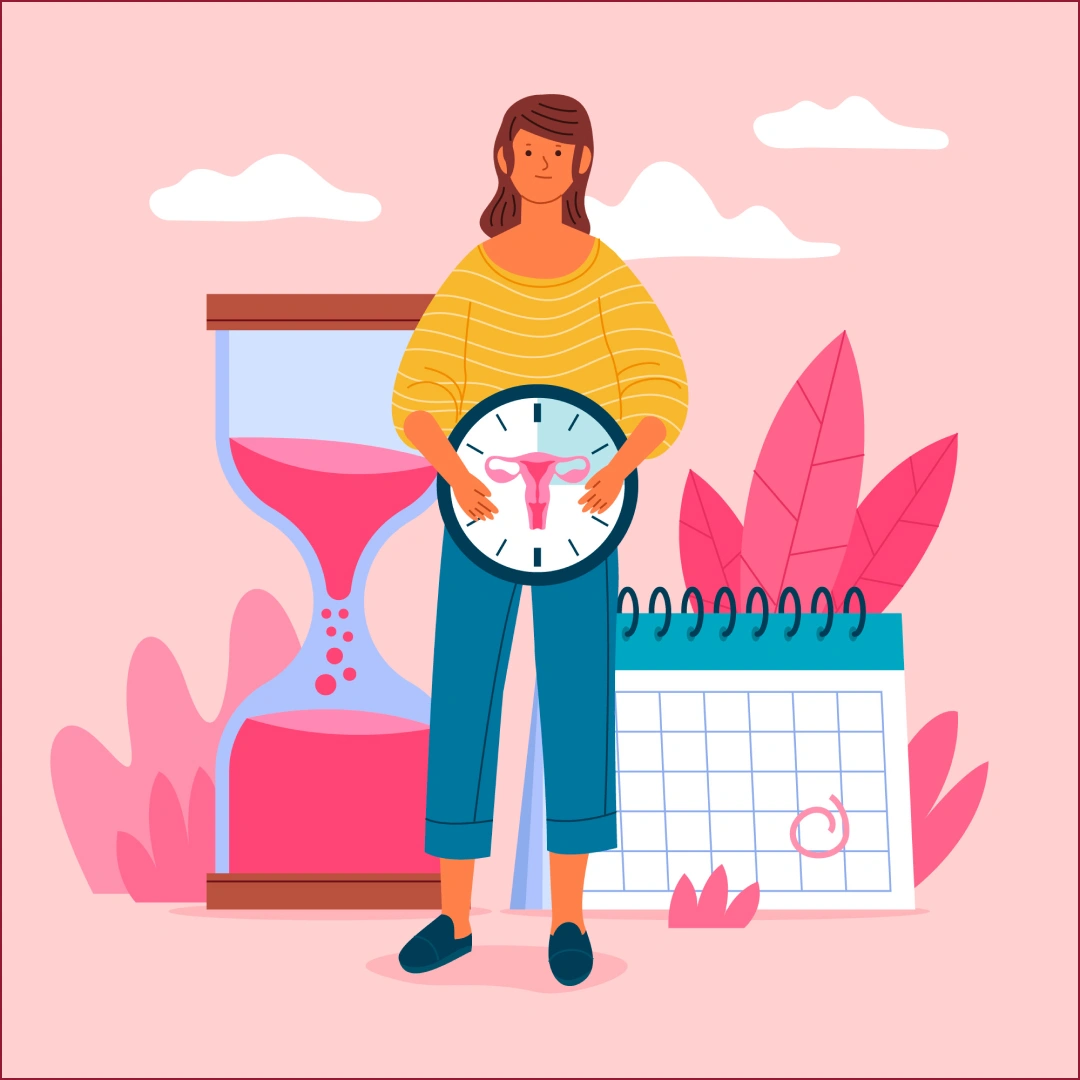Hormonal changes during periods are a natural part of a woman’s menstrual cycle, shaping physical, emotional, and psychological well-being. By understanding these changes, women can better manage their symptoms and maintain overall health. In this blog, we’ll explore the phases of the menstrual cycle, the role of hormones, and tips to navigate the challenges associated with hormonal fluctuations.
What Are Hormonal Changes During Periods?
The menstrual cycle is governed by fluctuations in key hormones: estrogen, progesterone, luteinizing hormone (LH), and follicle-stimulating hormone (FSH). These hormonal changes during periods regulate ovulation, the uterine lining, and other processes essential for reproduction.
The cycle typically lasts 28 days and consists of four phases:
- Menstrual Phase (Days 1–5)
The menstrual phase marks the start of your period, where the uterine lining sheds, leading to bleeding.
- Hormonal Activity: Estrogen and progesterone levels are at their lowest.
- Symptoms: Fatigue, cramps, and mood swings are common during this phase.
- Follicular Phase (Days 1–13)
This phase overlaps with the menstrual phase and continues until ovulation.
- Hormonal Activity: FSH stimulates the growth of follicles in the ovaries, and estrogen levels begin to rise, preparing the uterine lining for potential pregnancy.
- Symptoms: Increased energy, improved mood, and clearer skin are often experienced.
- Ovulation Phase (Day 14)
Ovulation occurs mid-cycle when a mature egg is released from the ovary.
- Hormonal Activity: A surge in LH triggers ovulation, and estrogen levels peak.
- Symptoms: Some women may feel mild cramping or notice changes in cervical mucus.
- Luteal Phase (Days 15–28)
After ovulation, the luteal phase begins. The body prepares for a possible pregnancy, and the uterine lining thickens.
- Hormonal Activity: Progesterone rises, while estrogen fluctuates. If pregnancy doesn’t occur, these hormone levels drop.
- Symptoms: PMS (premenstrual syndrome) symptoms like bloating, mood swings, and breast tenderness occur due to hormonal dips.
How Hormonal Changes During Periods Impact the Body
Hormonal changes during periods affect more than just the reproductive system. These fluctuations influence various aspects of health:
- Mood and Emotions: Low estrogen levels during menstruation can lead to irritability, while rising estrogen in the follicular phase boosts happiness and energy.
- Energy Levels: The menstrual and luteal phases often bring fatigue, while the follicular phase is linked to increased stamina.
- Skin Health: Hormonal shifts can cause acne breakouts, particularly during the luteal phase.
- Appetite: Progesterone during the luteal phase may increase cravings for carbs and sugary foods.
- Cramps and Pain: Prostaglandins, hormone-like substances, are responsible for uterine contractions and menstrual cramps.
Tips to Manage Hormonal Changes During Periods
Navigating hormonal changes during periods can be challenging, but these strategies can help:
- Maintain a Balanced Diet
Include nutrient-rich foods in your diet:
- Leafy greens, whole grains, and lean proteins support hormone regulation.
- Limit caffeine and sugar, which can worsen PMS symptoms.
- Stay Active
Regular exercise, like yoga or brisk walking, can alleviate cramps and improve mood by releasing endorphins.
- Prioritize Sleep
Aim for 7–8 hours of sleep per night to combat fatigue and stabilize mood swings.
- Manage Stress
Practices like mindfulness, meditation, and deep breathing help lower cortisol levels and reduce PMS severity.
- Track Your Cycle
Using a menstrual tracker can help you anticipate hormonal changes and plan accordingly for symptoms like mood swings or cramps.
- Consult a Healthcare Professional
For severe PMS or irregular periods, seek medical advice. Conditions like PCOS or endometriosis may require specialized treatment.
The Role of Hormones Beyond Periods
Hormones during periods don’t just influence the menstrual cycle; they also play a critical role in long-term health. Balanced hormone levels are essential for bone density, cardiovascular health, and mental well-being. Maintaining a healthy lifestyle is key to supporting hormonal balance and overall health.
Saanchi: Empowering Women’s Health
Saanchi, under the Draupadi Devi Welfare Organization, is dedicated to empowering women by addressing health concerns, including menstrual health. Through workshops, awareness programs, and access to resources, Saanchi educates women on managing periods and living healthier lives. By fostering a supportive community, Saanchi aims to remove stigmas around menstruation and promote holistic well-being.


